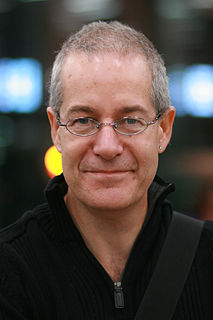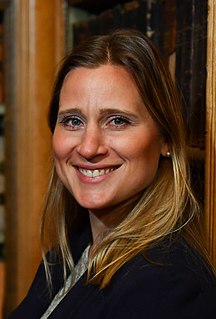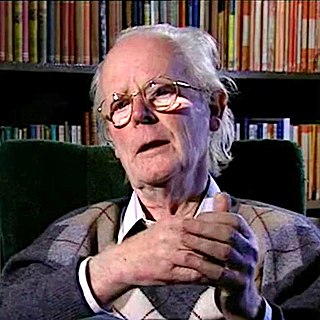A Quote by Massimo Pigliucci
The downside of skepticism: it can easily turn into an arrogant position of a priori rejection of any new phenomenon or idea, a position that is as lacking in critical thinking as the one of the true believer, and that simply does not help either science or the public at large.
Related Quotes
I believe in clear-cut positions. I think that the most arrogant position is this apparent, multidisciplinary modesty of "what I am saying now is not unconditional, it is just a hypothesis," and so on. It really is a most arrogant position. I think that the only way to be honest and expose yourself to criticism is to state clearly and dogmatically where you are. You must take the risk and have a position.
Sometimes I, as a public official, turn to Scripture or hymns - especially hymns, because sometimes we Catholics don't have the Scriptures memorized like we should - to help me explain a public policy position or an idea or to be able to articulate it better when you're talking about justice or mercy or compassion.
Our ignorance of the cosmos is too vast to commit to atheism, and yet we know too much to commit to a particular religion. A third position, agnosticism, is often an uninteresting stance in which a person simply questions whether his traditional religious story (say, a man with a beard on a cloud) is true or not true. But with Possibilianism I’m hoping to define a new position - one that emphasizes the exploration of new, unconsidered possibilities. Possibilianism is comfortable holding multiple ideas in mind; it is not interested in committing to any particular story.
Skeptics, who flatly deny the existence of any unexplained phenomenon in the name of 'rationalism,' are among the primary contributors to the rejection of science by the public. People are not stupid and they know very well when they have seen something out of the ordinary. When a so-called expert tells them the object must have been the moon or a mirage, he is really teaching the public that science is impotent or unwilling to pursue the study of the unknown.
If, two people have good minds and they're looking at problems, if they agree all the time it means one of them is not thinking. If they disagree all the time, it means one of them is not thinking. They're just allowing their political position to dictate their position on an issue. And I think that's unhealthy. And the public knows better.
Creationists argue that natural selection is only a negative process, and therefore cannot create anything. Chopra argues that skepticism is only a negative process, and therefore does not lead to knowledge. Both are wrong for the same reasons. They ignore the generation of diversity and new ideas upon which natural selection and skepticism acts. Weeding out the unfit is critical to both - natural selection allows evolution to proceed, and skepticism allows science to advance.
My position is a naturalistic one; I see philosophy not as an a priori propaedeutic or groundwork for science, but as continuous with science. I see philosophy and science as in the same boat--a boat which, to revert to Neurath's figure as I so often do, we can rebuild only at sea while staying afloat in it. There is no external vantage point, no first philosophy.
We set sail on this new sea because there is new knowledge to be gained, and new rights to be won, and they must be won and used for the progress of all people. For space science, like nuclear science and technology, has no conscience of its own. Whether it will become a force for good or ill depends on man, and only if the United States occupies a position of preeminence can we help decide whether this new ocean will be a sea of peace or a new terrifying theater of war.
Too much openness and you accept every notion, idea, and hypothesis-which is tantamount to knowing nothing. Too much skepticism-especially rejection of new ideas before they are adequately tested-and you're not only unpleasantly grumpy, but also closed to the advance of science. A judicious mix is what we need.
Often, I'm up against both - position and money power. And yes, a system that needs to be more 'woman-friendly.' I believe these experiences will probably give birth to a more public life, where I can address the issues of women that need help in being heard, for I have understood what it is to be in that position.


































